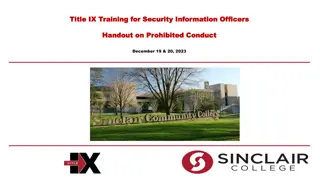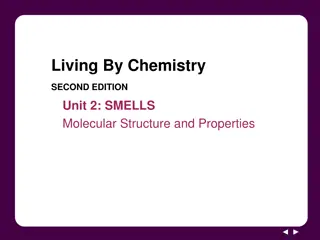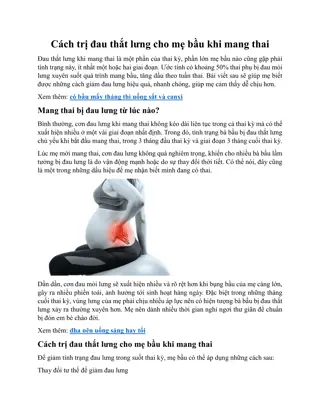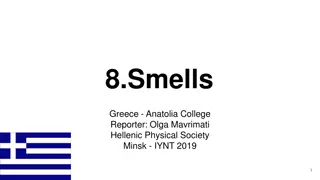Understanding Paul's Ministry in 2 Corinthians: Lessons in Authenticity and Struggle
Delve into the theological and practical aspects of Christian living in Second Corinthians, exploring the challenges faced by the Corinthian church in recognizing authentic ministry and submitting to apostolic authority. Follow Paul's journey as he defends his sincerity as an apostle, highlighting the contrast between true apostolic ministry and those who exploit the Word of God. Witness Paul's vulnerability as he shares personal struggles and finds comfort in Christ's eternal victory.
Download Presentation

Please find below an Image/Link to download the presentation.
The content on the website is provided AS IS for your information and personal use only. It may not be sold, licensed, or shared on other websites without obtaining consent from the author. Download presentation by click this link. If you encounter any issues during the download, it is possible that the publisher has removed the file from their server.
E N D
Presentation Transcript
The Crucial Concerns of Ministry The Crucial Concerns of Ministry What s That Smell What s That Smell Week 79 21 February 2024
2 CORINTHIANS INTRODUCTION As we embark upon this study in Second Corinthians, remember that the theme of this letter revolves around both the theological concepts and the practical aspects of Christian living. This primary issue in Corinth was the recognition of authentic ministry and submission to apostolic authority. Paul corrective is to provide guidance and encouragement as the church navigates the challenges that continue to influence their unity, discipline, and spiritual growth. In our study, Paul defends his authenticity and sincerity as an apostle, highlights the contrast between true apostolic ministry and those who exploit the word of God; reveals his deep emotional investment in the Corinthian church and his gratitude for those who remained faithful to him despite the opposition and criticism.
2 CORINTHIANS - LESSON OVERVIEW Swindoll opens our study by reminding us of Paul s literary works he says Paul s writings swell with profound and practical theology. Deep, Rich, FascinatingandTransforming the doctrinal length, breadth, height, and depth of his writings can capture and keep the attention of devoted Bible scholars for decades. So when we read Paul s writings, we will find more than weighty theology. We will see authentic humanity. In Paul s writings, we see not only divine revelation and epic truths, but words wrought in conflict, hardship and struggle. We see tear-stained pages, drops of blood, and beads of sweat that draw us to the ministry of Paul.
2 CORINTHIANS - LESSON OVERVIEW This letter reveals the authenticity of the apostle Paul, built upon his steely frame, on page after page we see parts of him that are still papier-mache. Among his rough edges and sharp points, we feel the soft terry cloth heart of a person whose compassion matches his exuberant passion. In the spirit of vulnerability, Paul shares with the Corinthians a recent personal struggle he faced in Troas. Sharing that as he reflected on the struggle, he took comfort in Christ s eternal victory. Envisioning the believers place in the victory procession, marked with the fragrance of victory for those who are in Christ.
2 CORINTHIANS 2:12-13 12Furthermore, when I came to Troas to preach Christ s gospel, and a door was opened to me by the Lord,13I had no rest in my spirit, because I did not find Titus my brother; but taking my leave of them, I departed for Macedonia.
2 CORINTHIANS 2:12-13 Troas was located on the northwestern tip of Asia Minor (Turkey), about 250 miles from Ephesus, where Paul had been ministering. It had been a long difficult journey, but when he arrived he found people eager to hear his message. Their spiritual hunger would have made any ambitious preacher salivate with delight. Yet, Paul found himself distracted, eaten away on the inside by emotional turmoil, he had no rest for his spirit (2:13). The Greek word rest means a loosening or a relaxing. In other words, although Paul had this great opportunity for fruitful ministry, he felt distracted, disquieted, and dismayed.
2 CORINTHIANS 2:12- Anxiety gripped Paul s spirit and prevented him from focusing on his task of ministry. What should have been a joyous occasion in ministry became a trial and a chore. It seem improbable that this could happen to Paul. How could any preacher stand before a great crowd of spiritual sponges and walk away without even a light sprinkling? Yet, that is what Paul, the great apostle to the Gentiles did, he left Troas and went on to Macedonia. What would drive a man of Paul s endurance and determination to walk away from this ministry opportunity? He could not find Titus, his dear friend and brother in the Lord.
2 CORINTHIANS 2:12-13 Apparently, Titus was supposed to meet Paul in Troas to update him on the Corinthian situation and to help with the ministry in there. However, when Paul arrived in Troas and did not find Titus, his got anxious; then his imagination kicked in, and started feeding him the worst kind of images. Had he been arrested? Betrayed by Jewish or Gentile opponents? Executed? Assassinated? An Accident? Illness? The possibilities were endless. All of us who preach and teach the Word can relate. We have been in situation like this, where intense worry and fear of the unknown consumed us, and distracted us from the task at hand.
2 CORINTHIANS 2:12-13 Present in body, absent in mind this all-too-common reality of public ministry hounds every minister of the gospel. And it chased Paul during his brief stay at Troas. Swindoll quoting David Lowery says . . . Despairing at his own inability to concentrate on the great potential for ministry in Troas (7:5-6), Paul said good-by to the church there and pushed on to Macedonia. While the door remained open for him and God used him mightily on his return, for the moment, Paul despaired, unable to rise to the occasion, no doubt feeling like a beaten man.
2 CORINTHIANS 2:14-17 14Now thanks be to God who always leads us in triumph in Christ, and through us diffuses the fragrance of His knowledge in every place. 15For we are to God the fragrance of Christ among those who are being saved and among those who are perishing. 16To the one we are the aroma of death leading to death, and to the other the aroma of life leading to life. And who is sufficient for these things? 17For we are not, as so many, peddling the word of God; but as of sincerity, but as from God, we speak in the sight of God in Christ.
2 CORINTHIANS 2:14-17 So instead of lingering on his feelings of defeat, Paul pressed on. He moved from his own weaknesses in ministry to Christ who triumphs over every circumstance. Starting in 2:14 through 6:10, Paul discusses the earthly realities of authentic ministry. He begins by zooming in on these three essentials of effective Christ-centered ministry: Authentic ministers follow the Leader rather than take the lead (2:14). Authentic ministers display God s grace regardless of human response (2:14-16). Authentic ministers preach the Word despite their inadequacies (2:16-17).
2 CORINTHIANS 2:14-17 So, as Paul departs Troas early to go to Macedonia, he writes, But thanks be to God (2:14). What an attitude! He moves from the pits of uncertainty, desperation, and despair, to exuberant praise and thanksgiving for God s glorious deliverance. However, he doesn t immediately reveal the cause of his praise. It s as if he is trying to tell us that we ought to rejoice in the character of God as the powerful, trustworthy victor over all of our circumstances, even if we don t see the triumph immediately. Instead of just sharing the news about Titus, Paul drew on a common image in that day to communicate an important principle concerning ministry.
2 CORINTHIANS 2:14-17 Barclay helps us see Paul s thoughts when he uses the word triumph for the victory believers have in Christ (2:14). In a triumph, the procession of the victorious general marched through the streets of Rome to the Capital in succession. First, came the state officials and the senate. Then the trumpeters, those carrying the spoils of the conquest, then the captive princes, leaders and generals in chains. Then the magistrates, their lictors, then the musicians with the lyres, then the priests swinging sweet-smelling incense burning. Then came the general standing in a chariot drawn by four horse, his family and finally the army all decorated and shouting Io triumpe! Their cry of triumph.
2 CORINTHIANS 2:14-17 Having walked through the details of a Roman parade of triumph, let s look at the first essential of authentic ministry: take the lead (2:14). Christ, our Conquering King, leads us into battle. Look what Paul says Thanks be to God, who always leads in triumph in Christ (2:14). First Authentic ministers follow the Leader rather than not pursuing our own triumph. Christ chooses the battles. He claims the victory. Effective ministry occurs when we are in Christ triumph, His, so we might share in a triumph not rightly ours. If we kept this principle as our focus, we would see fewer names on ministries, projects, buildings, and churches. Remember at Calvary, Christ took on a battle not rightly
2 CORINTHIANS 2:14-17 People would give anonymously, lead from among the ranks, and seek their reward from Christ in the future rather than recognition from Christians in the present. people appreciation when it is due. Make no mistake! There is nothing wrong with showing culture s conditioning, and we seek praise, glory, and honor for our victories rather than following Christ in His victory. However, sometime we adopt the world s ways and our regardless of human response (2:14-16). These ancient processional were marked by an aroma, from the censers of smoking incense carried by the priests. Second Authentic ministers display God s grace
2 CORINTHIANS 2:14-17 The smell would flow equally over those exulting in triumph and those hanging their heads in defeat. To the victors, the incense reinforced their victory over the enemy. incessant reminder of military defeat and imminent death. To the latter, the smoke stung their nostrils with the off an aroma. Our message, our morals, and our lifestyle either encourage people to believe and live like us, or they anger people who reject our beliefs and despise our lifestyle. In this analogy, Paul is saying that as Christians, we give family member, only some rejoice in the hope of eternal life and reunion at the resurrection. While we all grieve the loss of a friend, loved one, or
2 CORINTHIANS 2:14-17 Those who have eternal life in Christ receive the message of resurrection as a sweet-smelling aroma of life. Others however, reject the message of the resurrection. Regarding it as superstitious soothsaying a useless crutch to get us through the unpleasant, hard realities of life. To them, the message of salvation in Christ is a dead message not of hope, but of death. The very same message of salvation in Jesus Christ can be received as the smell of life or of death, depending on whether people approach it in faith or unbelief. inadequacies (2:16 -17). Here, Paul points to those who were peddling the word of God as ministers of insincerity, self- sufficiency and personal promotion. Third Authentic ministers preach the Word despite their
2 CORINTHIANS 2:14-17 They were in it for the fame, honor, and financial benefits. The image is one of street salesmen hawking their wares, interested only in making the sale and increasing their numbers. Just like the money changers in the temple courtyard, there will always be street salesmen in the church peddling prophetic pills, cure-all tonics, positive thinking, health and wealth, legalism, and cynicism. They will peddle whatever sells, whatever we are gullible enough to purchase. But when it come right down to it none of us are qualified for the job we are doing. Paul asked, Who is adequate for this thing? (2:16), implying nobody! Nobody is self- sufficient; nobody can do it on their own.
2 CORINTHIANS 2:14-17 As desperate as Paul was to meet with and speak with Titus, he was transparent and sincere about his weakness in ministry at Troas. Charlatans don t take off their masks and let people see the real, flawed individual behind them. Paul assured the Corinthians that he was no salesman. He represented the Lord, not himself. His adequacy was not in his persuasive words, but in the authority of the One who sent him and the content of His message Jesus Christ. Paul s words remind us that only when we serve authentically, selflessly, and sacrificially can we be sure that our ministry is being performed in the sight of God (2:17).
APPLICATIONS OF THE LESSON An Honest Evaluation of Our Own Ministries
APPLICATION HONEST EVALUATION In closing, Swindoll says. . . Now that we have looked into some of Paul s ministry struggles, fears, worries, concerns and failing . . . Let s do a self-exam of our own ministries, by focusing on four crucial categories and questions about our dependence on God, victory in Christ, witness to the world, and authentic ministry. FIRST Our dependence on God. Are you really depending on God. Are you waiting on Him or rushing Him? When He doesn t come in your timeframe, do you take matters into your own hands and run ahead of Him? Sometimes God tests our dependence on Him in order to strengthen and deepen that virtue in our lives.
APPLICATION HONEST EVALUATION This might mean impressing His will upon our hearts to test our go-for-broke obedience. Or it may mean letting you wait for His guidance for what may seem like a long time. Both the voice of God and the silence of God can teach us to depend on Him. SECOND Our victory in Christ. If you were to watch a expos of your life, would it describe somebody victorious over doubt, fear, hypocrisy, pride, and sin? Or, would it portray a despondent, defeated, less-than effective Christian wavering between activity and passivity? If Christ s power always leads us in triumph (2:14), could it be that you are been either following somebody else s parade or trying to lead your own?
APPLICATION HONEST EVALUATION Have you committed yourself to God as a living sacrifice, voluntarily surrendering your body, your mind, your heart, and your will to Him (Romans 12:1-2)? If not, what s keeping you from doing that right now? THIRD Our witness to the world. How do you smell to those around you? Not based on your cologne or perfume, are you exuding the scent of sin or the aroma of the Savior? Christ-like character has an unmistakable fragrance. It will attract those God has prepared to hear and receive His good news, and drive away those whose heart have been hardened to His good news.
APPLICATION HONEST EVALUATION While how others response is up to the Lord. No believer wants to be responsible for driving an unbeliever away from Christ. But when our testimony says one thing and our behavior puts off a putrid odor that points to something else, that is what we do. FOURTH Our authentic ministry. Now days, people can spot charlatans and fakes pretty well. We are use to politicians grinning while lying through their teeth. We ve seen TV preachers rail against immorality, right up until they get caught.
APPLICATION HONEST EVALUATION We ve learned how to resist the high-pressure pitches from salesmen bent on taking our money. It s only by modeling sincere authenticity can Christians counter this culture of posers and wannabes. Is being real one of your priorities? Do you let people in on your weakness as well as your strengths? Do you exhibit vulnerabilities or do you conceal them with showmanship? Authenticity mean coming to grips with who you are and being transparent about what your life is like beneath its polished exterior. It can be painful and it is always risky to be real, but that s how we deeply impact others (1Thes. 2:8).
APPLICATION HONEST EVALUATION So, as you reflect upon and answer the questions here, ask yourself if your relationship with the Lord has bottomed out at a superficial level. Thankfully, God always leads in triumph, so he always leads His children into a deeper relationship with him. If you want a deeper more meaningful relationship just ask Him. Today, God is seeking humble, sincere, authentic servants to advance His kingdom into the future. Will you answer The Call?
NEXT CLASS 28 February 2024 Before next class, read the below chapters in Before next class, read the below chapters in the the NKJV NKJV and in one other versions of the Bible, and in one other versions of the Bible, i.e., i.e., KJV KJV, , NRSV NRSV, , NIV NIV, , CEV CEV, , etc etc Chapter 3:1 18 A New Covenant Kind of Ministry























